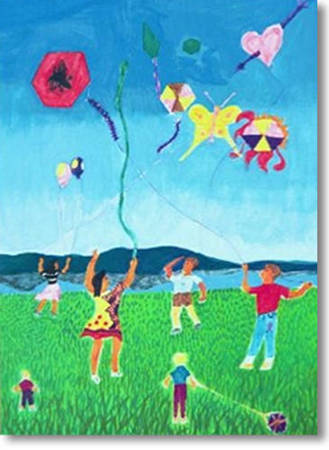Historical points
In the last decade of the 20th century many nations and areas have split into diverse ethnic groups. This fragmentation has often been followed by extreme cruelty of individuals and groups to others.
Difference in colour, habits, belief, origin and social position has often ignited cruelty and violence towards other people. It has been like this in the history of mankind and it will continue to be a problem for mankind to deal with. All cultures and all ethnic groups have values they can be proud of. Most nations carry the burden to have at some point participated in bad treatment of enslavement of others.
Among all nations, religious groups, ethnic groups and clans, there exists injustice towards those who are different in one way or another. The injustice that minority groups suffer is primarily rooted in fear and hatred which again stimulates violence.
If groups somehow feel they are oppressed or humiliated they often react fiercely and even take it out on others. This pattern is quite common. If for instance the school is too inflexible and demanding to those who somhow are vulnerable, it can provoke hateful reaction or depression and reservedness.
Multiculturalism.
The number of immigrants here in Iceland has doubled in the last five years and they are now, in 2002, ten thousands. We must react to this situation. In 2001, the city of Reykjavík issued a multicultural policy for the elementary school. It is important that teachers and staff of elementary schools understand the purpose of multicultural teaching. It’s main objective is to change educational institutions and curriculum so that all students get equal opportunities to education, with no regard to disabilities, social conditions, gender, race or cultural characteristics. Multicultural teaching gives opportunity to face our common problems and find the best aspects of every culture.
How can we react?
The ability to express respect and positive consideration is an important part of purposeful encounters between cultures. It is important to practice tolerance, flexibility and an open and positive attitude toward what is new and show understanding to those who are different. Various explanations of people’s behaviour are not obvious. Unacceptable behaviour can not be allowed. But at the same time, one must avoid to take hostile stand toward those who show strange behaviour. It is extremely important that we learn tolerance and teach it to others.
There are limits to cultural tolerance. The twentieth century has taught us that again and again. In many cultures there are deeply rooted convictions which we regret and we find it terrible that they exist. These are for instance ideas about women and their bodies, ideas about races, children, about authorities and lawbreakers, the sick, the weak, the poor and the rich.
We need universal ideas that everybody can accept. They must include an acknowledgement of the variety of human life and cultures. Otherwise, a danger of chaos, hostility and struggles can arise.
We have opportunities to develop positive attitude toward individual or common cultural values and establish tolerance toward all characteristics that do not harm people and their societies.
It takes long time to enhance tolerance and understanding of difference. When we struggle to enhance multicultural way of thinking, we find out that in the long run it gives better results to accept a frame of mind which we find different from what we are used to. Instead of avoiding to receive students who are different and behave in a strange way, it is better to take the challenge. It enhances our understanding and makes us better capable of receiving different students.
